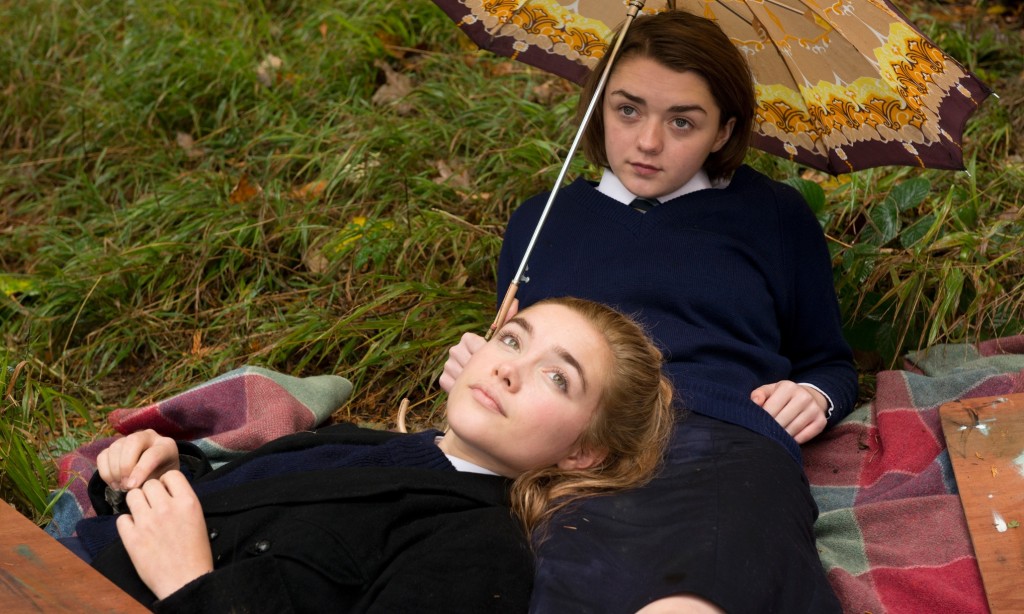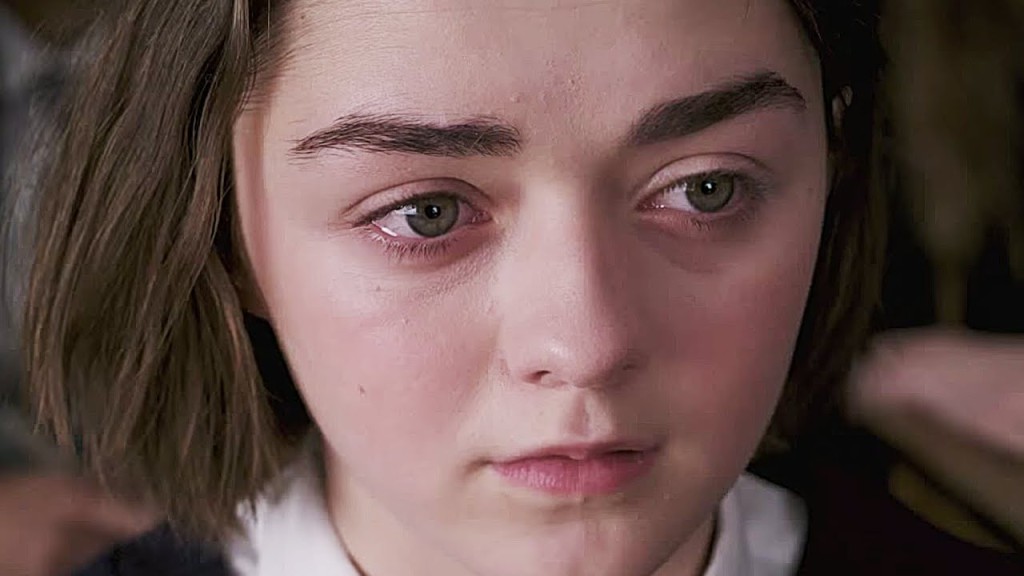Carol Morley’s jarring new drama “The Falling” will prove fulfilling for some, but many will be left craving something more decipherable.
Carol Morley’s latest feature film, The Falling, is a perplexing drama about a hysteria of fainting that overpowers an all-girls school in the late 60s, and one that will surely prove one of the year’s most divisive films. Gorgeously shot yet haphazardly edited, the film will lose many audiences in translation but might feel substantial for those that can relate to the passionate narrative and bask in the serene locales.
Maisie Williams stars as Lydia, a defiant teenage girl who has an intimate friendship with the graceful yet promiscuous Abbie (Florence Pugh), a close relationship with her handsy brother Kenneth (Joe Cole), and is estranged from her agoraphobic mother Eileen (Maxine Peake). The film initially seems to be more about Abbie, or at least her friendship with Lydia, as we find that the former has become pregnant after losing her virginity in the back of a car. Lydia treats this news with deadpan nonchalance, refusing to understand why Abbie chooses to run around with random guys (and later Lydia’s brother, who thinks some “rigorous exercise” might help get the baby out).
Nonetheless, Abbie is painted in an angelic light, and clearly earns the respect and reverence of her peers. Passionate about poetry, she talks and acts with an honesty and purity that transcends the fictitiousness of her peers and superiors. Her scenes are bookended with tranquil montages of the scenery surrounding their quaint, secluded school in rural England and are accompanied by placid choral arrangements. A soft ballad she sings to Kenneth after a love scene becomes a recurring feature in the film’s soundtrack.
Things then take a turn for the tragic, complicated and just plain weird when Abbie faints in the hallway after a bout of detention, and then dies in the arms of the stern Miss Mantel (Greta Scacchi). Revealing such a shocking event would normally be a spoiler, but considering it’s the catalyst of the film’s major plot line - an epidemic of fainting that seems to develop as Lydia’s reaction to her friend’s death and the rigidity of the system the girls live under - it’s a negligible revelation.
Lydia begins fainting in class and in assemblies, clearly in rebellion but also seemingly without any notion of thought or control. Soon the rest of the girls - there’s a well-cast group of them that forms a sort of sisterhood around Lydia - begin to follow suit, and even a few of the younger teachers get caught up in the madness. This epidemic coincides with a wave of self-discovery among the girls of the identities and desires, and with a new level of defiance from Lydia towards her paranoid mother. With increasing levels of performance art, the girls continue to lose consciousness in public and find themselves in private.
All of this might be interesting on paper, but its on-screen realization is difficult to come to terms with. The cinematography by Agnes Godard is picturesque, but often the meaning of certain scenes is lost in haphazard editing that joins together shots that would’ve been more effective in one fluid motion. Most of the fainting scenes are edited so that random images - some familiar and some far-out - are flashed at high speed as the girls fall to the floor. This effect makes the film feel a bit too Paranormal Activity, which clashes with the poetic serenity of the montages of scenery that serve as romantic interludes between each scene.
Speaking of those montages, their effect doesn’t always feel as intended, either. It’s not as much the visuals but the music that causes the problem, with a strange mixture of lyrical and instrumental croons over-sentimentalizing scenes that would be better left to reflect in silence. Each individual song is perfectly fine, but the overriding impact of the score is more distracting than nostalgic.
The physical performances by the film’s talented young actress might also be a distraction for some, with Morley often directing the girls - especially Lydia - to have more idiosyncrasies and tics than they might need. That said, Maisie Williams owns the role, and is one of the most memorable aspects of the film. This is the first thing I’ve see her in as I haven’t watched Game of Thrones, but I predict a strong career ahead.
The overall impression I got from The Falling was a mixed one, with respect for the artistry and passionate thematic material but also confusion at the way things were juxtaposed together and discomfort at certain elements. Certain events in the latter half of the film will seem unnecessarily disturbing to some audiences (revealing specifics would spoil a perplexing ending), and many will wonder what the film is trying to achieve. As a whole, it feels rushed and even unfinished, but there’s a lot of heart to extract if the premise intrigues you.
The Falling is out now on DVD and video on demand.




